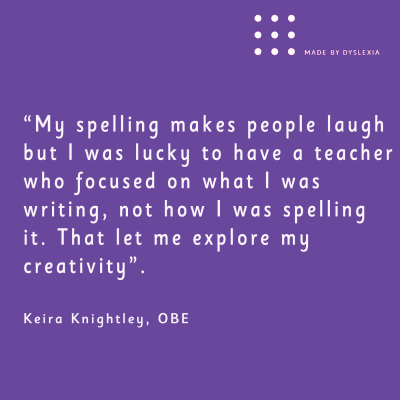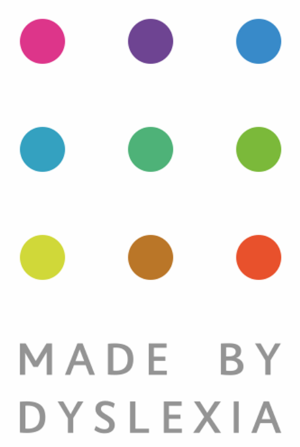Indicators of dyslexia

Learners with dyslexia may...
- Struggle with manipulating and holding on to sounds and words, which can make learning to read and spell difficult.
- Have difficulty with verbal memory to follow instructions with multiple steps.
- Have challenges with executive function skills, such as organization, concentration, and sequential tasks.
- Find math operations difficult.
- Struggle with memorization.
- Require more time to process thoughts and complete tasks, including classroom and high-stakes tests.
- Not have test scores and grades that reflect how much that student has actually learned.
An accommodating educational experience will...
- Use a multi-sensory, explicit phonics approach to better help students with dyslexia learn to read. Ask a student if they would like to read aloud ahead of time and make it optional in a group setting.
- Provide supports like guided notes, copies of presentations, and access to a calculator. These supports allow students with dyslexia to spend instructional time focusing on the concepts and ideas being taught.
- Explicitly teach learners with dyslexia organizational skills, such as how to use an agenda and organize materials. Be sure classroom routines and organizational practices are explicit and consistent.
- Provide accommodations on traditional exams and assessments, such as having the test read aloud, allowing students to dictate their answers, and provide additional time. *Check with the school or exam coordinator for accommodation requirements.
- Offer learners with dyslexia to organize their ideas on paper first. Provide supports such as speech to text dictation and Immersive Reader. Then give them an opportunity to use tools like spell-check to edit their work. Avoid assessing spelling and grammar on a first draft.
Reflection
- In this video, what were some of the accommodations recommended for students with dyslexia?
- What are the benefits to a student who is provided extra time to think, or more time to work on a test?
- What things could you bring in to any lesson in any subject that could help blend multiple senses for students as they learn new material?
- Are there any barriers to providing accommodations for students?
- Are there simple things you can do, like place instructions on the whiteboard, which help learners who have challenges with working memory or auditory processing? Can you chunk instructions? Or repeat them or ask a child to summarize them? What helps dyslexic learners helps all learners.
